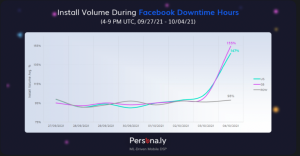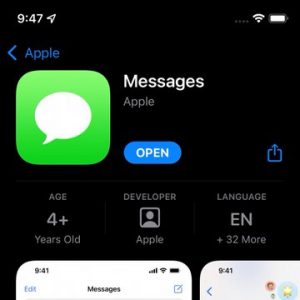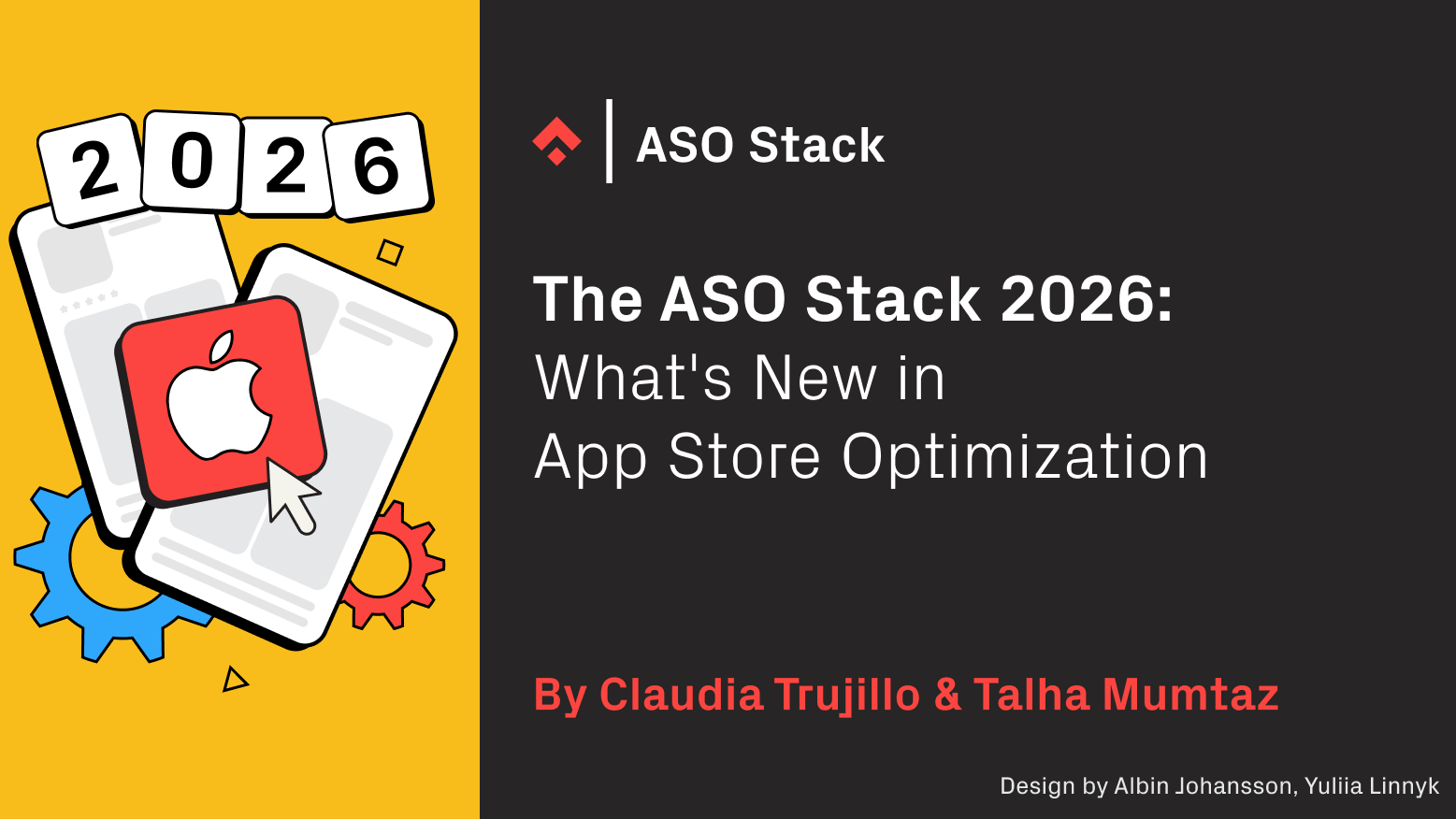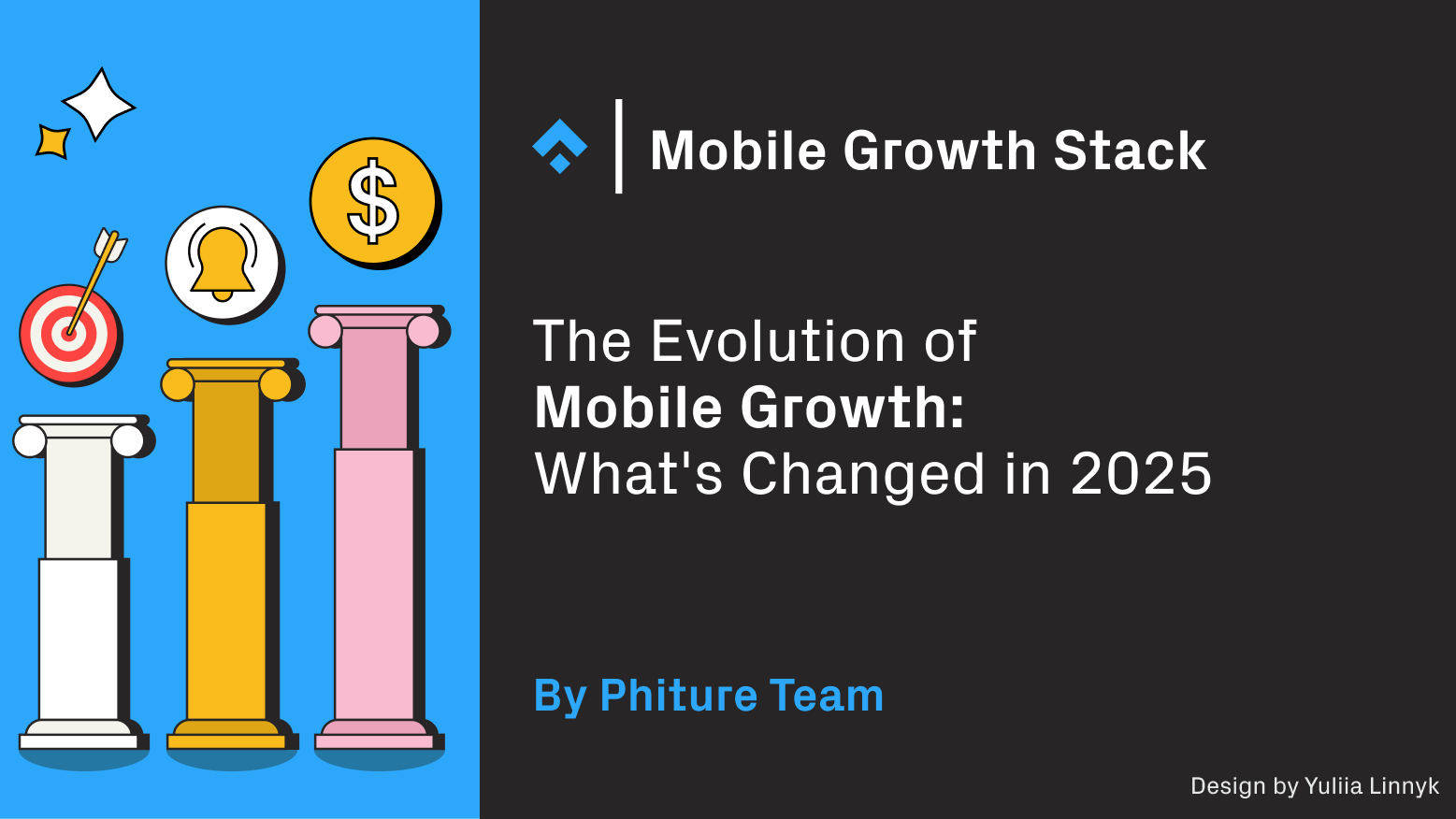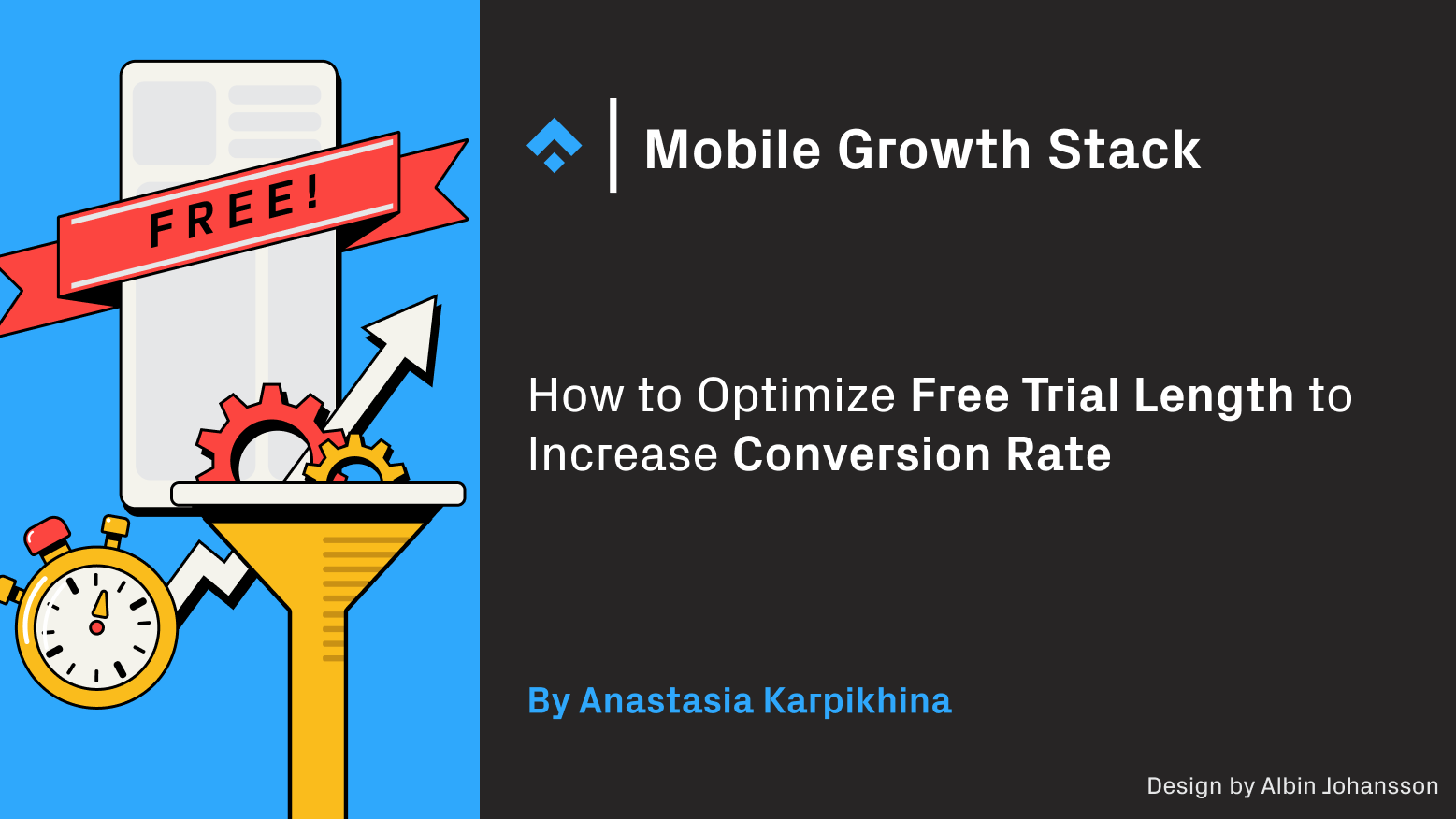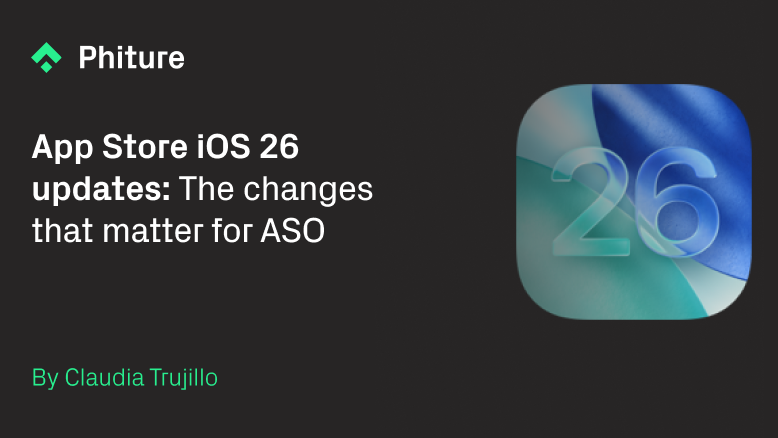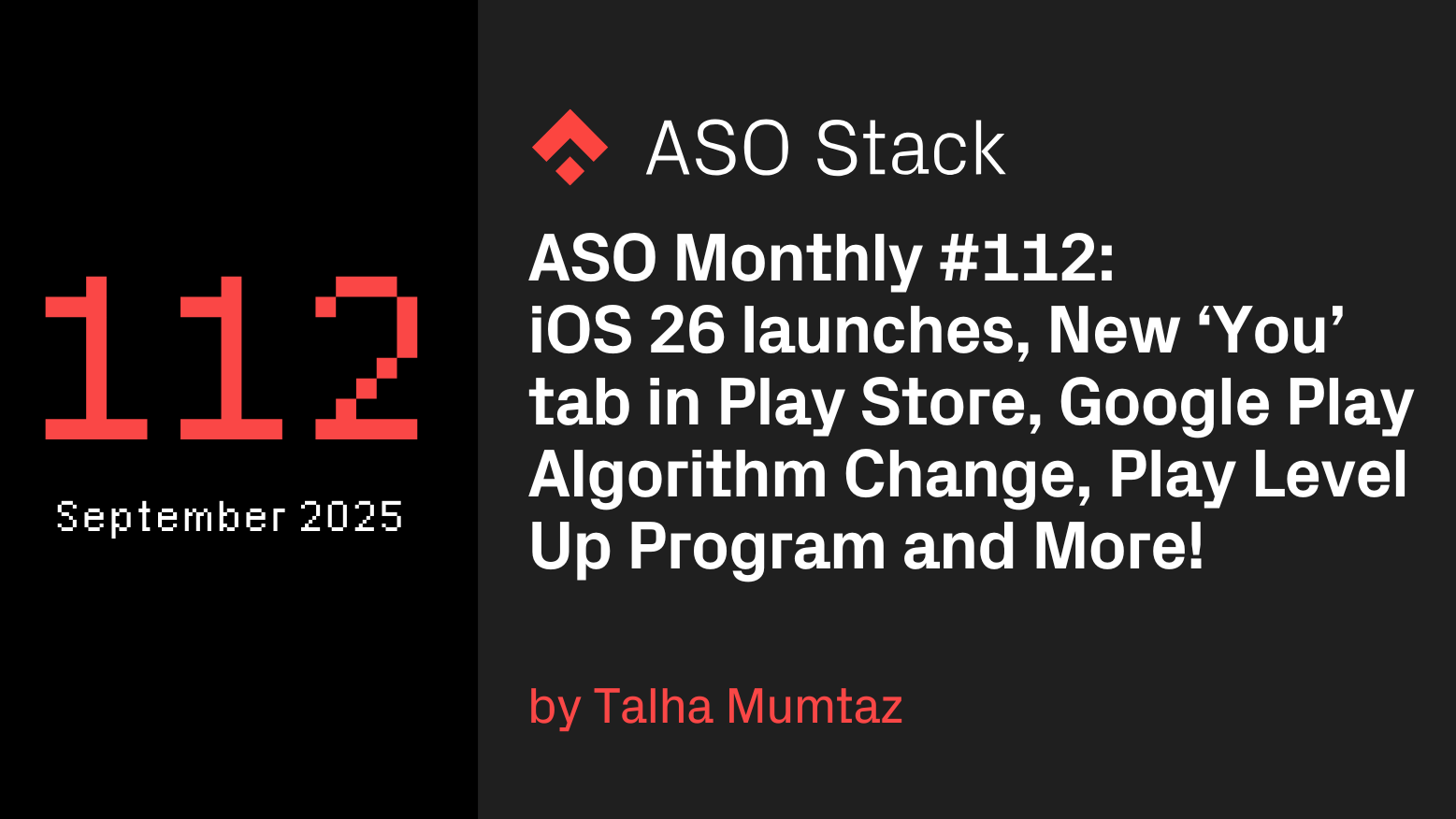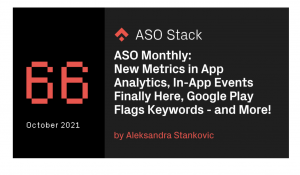
In this ASO Monthly series, the Phiture team reflects on the previous month and sheds light on trends in app store optimization, algorithm changes, privacy changes, conversion rate optimization, and tool updates.
This update was prepared by ASO Consultant Aleksandra Stankovic at Phiture.
Phiture has prepared a series of articles on iOS 15 to ensure you’re ready to install!
iOS 15: The Conversion Rate Optimization Loop
iOS 15: Product Page Optimization: The A/B Strategy
October 5 – A massive surge in app install volumes in the US and UK
A massive surge in app install volumes was detected after the Facebook, Instagram, and WhatsApp outage that took place on October 4. Compared to the daily average download trend of previous weeks, increases of up to 55% and 47% in the US and UK respectively were recorded. The surge did not differ greatly between verticals; however, it wasn’t detected in other locations around the world, as reported by ASO Stack community member Lior Livak.
Source: ASO Stack
Whether the anomaly that caused the surge was fixed is unclear. Nevertheless, we recommend that ASO practitioners take this event into account when examining the total number of installs in the affected locales. (ASO Stack Slack Community)
October 7 – New metrics now available in App Analytics
After the latest App Store Connect update, new metrics are now available in the App Analytics section. Each metric can be displayed by territory, source type, device, and more. The following are the most significant changes:
- App Units are now called Downloads.
- Previously, we were only able to see new installs (App Units), while current metrics show three types of downloads: First-Time Downloads, Redownloads, and Total number of Downloads.
- First-Time Downloads are precisely the same as App Units since they call the same APIs.
- Redownloads show you the number of users who decided to install your app again.
- The Total number of Downloads is the sum of First-Time Downloads and Redownloads, as well as Institutional Purchases (if applicable to your app).
- Institutional Purchases are listed as a new source of traffic and represent the data from Apple School Manager and Apple Business Manager. (Apple)
- Other metrics include proceeds, pre-orders, and updates.
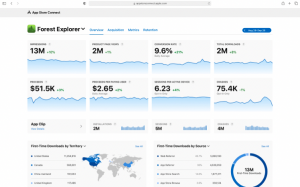
Source: App Store Connect
From an ASO perspective, the most important new metric is still First-Time Downloads. This will help you determine if your ASO efforts have been successful.
A word of caution for ASO practitioners: you will likely see a spike in the total number of downloads since the new metrics appeared, but be mindful that this is because the Total number of Downloads also includes Redownloads. Keep in mind that Institutional Purchases (if applicable to your app) will be included in the Total number of Downloads as well, but will not be added to Impressions since this purchase originates outside of the App Store. (Apple)
October 11 – Possible bugs reported in relation to Institutional Purchases
Several members of the ASO Stack community have spotted issues with Institutional Purchases reports. Huge spikes in the number of installs were noticed for desktop versions even though, in some cases, the apps in question didn’t even have a desktop version. The traffic coming from this source is untraceable. Since it is coming from outside the App Store, the metrics within the App Store cannot report on it.
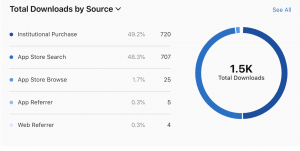
Source: ASO Stack
It is speculated that these may in fact be pre-installs and that the plain old Apple VPP (Volume Purchase Program) appears under a new name — Institutional Purchases. As stated, these are orders in bulk that don’t even require rolling out to devices. We recommend that ASO practitioners apply an extra layer of caution when it comes to Institutional Purchases. Consider omitting them from your reports, if necessary, until more information is provided on the subject. (ASO Stack Slack Community)
October 12 – The 30-character title limit is coming into effect in the Play Store
The new Store Listing Policy in the Play Store, that was announced for September 29, is finally coming into effect. As previously reported, according to the new policy, the app name should be 30 characters long, as opposed to the previous length of 50 characters.
Several members in the ASO Stack community have reported seeing a warning notification in the Google Play Console to comply with the new policy. However, the deadline to do so remains unknown.

Source: Google Play Console
From an ASO point of view, Google’s delay to enforce the new regulations is fortunate, considering that removing certain keywords from the title may result in a decrease or even loss of rankings. Just a reminder: as an attempt to mitigate the impact of the new policy, we suggest adding the removed keywords to the long description. (ASO Stack Slack Community)
October 12 – Keywords not in compliance with the new App Metadata Policy flagged in the Play Store
As a part of the Store Listing Policy update, Google has restricted the use of certain keywords that indicate store performance or ranking, such as first, best, free, etc. However, several members of the ASO Stack community have reported receiving a warning notification in the Google Play Console for the use of those keywords in a different context.

Source: Google Play Console
Specifically, the keyword “first” was flagged in the context of “first love”, which is not related to indicating ranks or store performance. The prevalent opinion in the community is that the keywords are flagged automatically by Google’s AI without taking context into consideration. This leaves room for appeal; however, from an ASO standpoint, it is advisable to start considering alternative solutions. (ASO Stack Slack Community)
October 27 – In-App Events on the App Store are finally here
As of October 27, 2021, you can create in-app events and schedule them to appear on the App Store. In-app events are different kinds of events within apps and games, such as game competitions, live-streaming experiences, etc.
With this new feature, you can make sure that customers discover your in-app events right on the App Store, allowing you to extend your reach. They appear on the App Store as event cards that contain images or a video, the event name, and a short description, giving you lots of options for optimization.
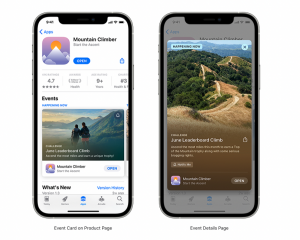
Source: Apple Developer
Customers can click through to an event details page, which provides them with more information so they can also share the event with others on social media. If they choose so, they will receive a notification when the event starts. (Apple)
The exciting opportunity is also reflected in the fact that customers can download your app or game directly from the event card if they don’t already have it on their devices.
However, there is a concern that in-app events might crowd the apps that used to appear in the search results. This is something ASO practitioners should keep in mind.
Another thing to consider is how the in-app event metadata is indexed. Namely, it includes the name (30 characters), short description (50 characters), and long description (120 characters), out of which only the long description is likely not indexed. This leaves room for an additional optimization that ASO practitioners should take advantage of. (ASO Stack Slack Community)
October 27 – App Store Review Guidelines updated: collecting user information now allowed
As reported by ASO Stack community member Ilia Kukharev, App Store Review Guidelines were updated and state that collecting user information and targeting users outside the app to understand more about 3rd-party purchase methods is now allowed. This refers to apps that use purchase methods other than in-app purchases, such as reader apps, multi platform services, enterprise services, person-to-person services, etc.
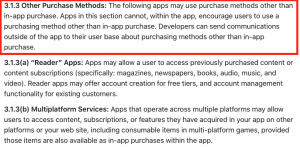
Source: Apple
It is stated that apps in this section cannot encourage users to use a purchasing method other than an in-app purchase within the app. However, developers are now allowed to communicate with their user base outside of the app about other kinds of purchasing methods.
This can provide additional information about users and paint a clearer picture for app developers, as well as aid marketing campaigns. This presents an opportunity to create customized store assets and align them with marketing campaigns. (Apple)
October 27 – Apple now allows rating and reviewing of their built-in apps on the App Store
Rating or reviewing Apple’s built-in apps was not allowed for a long time. However, since the release of iOS 15, that restriction seems to have been lifted, as reported by an ASO Stack community member. (ASO Stack Slack Community) Any built-in app with an App Store listing is now susceptible to rating and reviewing.
Source: Twitter
October 28 – iOS Search Algorithm bugs are occurring worldwide
As shared by ASO Stack community member Hiroto Inada, the iOS Search Algorithm seems to be experiencing bugs worldwide. Apparently, the search results for both branded and generic keywords differ greatly. In particular, branded keywords have a stronger impact even if they’re not displayed.
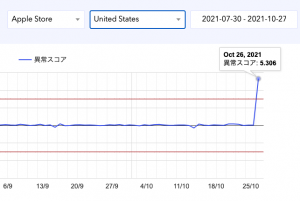
Source: ASO Stack
In addition, AppTweak’s algorithm detecting tool also fluctuates greatly, and search results in each country look abnormal. ASO practitioners are advised to approach the situation with caution during this time. (ASO Stack Slack Community)
Events
December 2nd: App Promotion Summit , Berlin
December 7th-9th: App Promotion Summit, Online
Tool updates
AppFollow: AppFollow launches version 7.0
AppAnnie: New feature enhancements to App Annie Game IQ
Interesting reads
Launching Data safety in Play Console | Android Developers Blog
Evolving our business model to address developer needs | Android Developers Blog
How incentive traffic helps promote your app in the App Store and Google Play | Asodesk
Ratings of the top mobile games on the App Store and Google Play | Asodesk
App Annie: Time Spent On Mobile Shopping Apps Expected To Surge During Holidays | a.list
Holiday Season Mobile Shopping Set for Further Boom Across APAC | AppAnnie
Thank you for reading this far!
Discover more ASO hacks & insights by joining the ASO Stack community
Table of Contents

